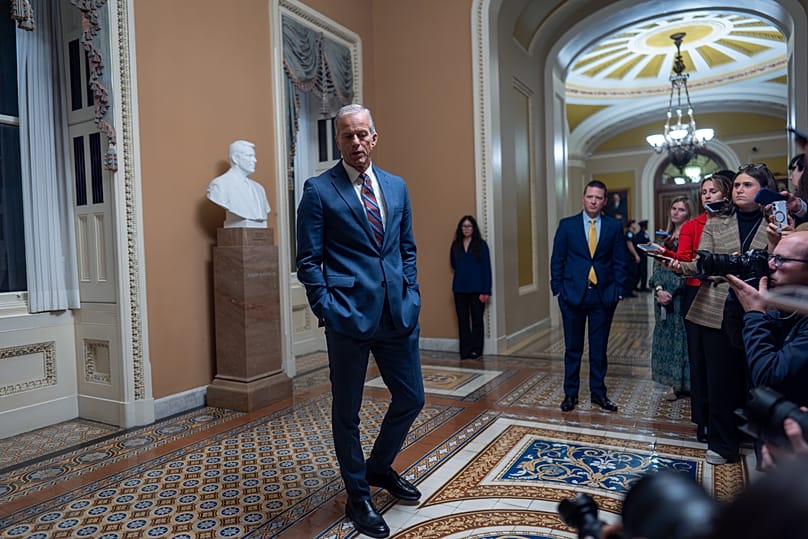US Senate approves bill to end the shutdown, sending it to the House

The United States Senate has passed legislation to reopen the government, bringing the longest shutdown in history closer to an end as a small group of Democrats ratified a deal with Republicans despite searing criticism from within their party.
The 41-day shutdown could last a few more days as members of the House, which has been on recess since mid-September, return to Washington to vote on the legislation.
President Donald Trump showed support for the bill, saying Monday that “we’re going to be opening up our country very quickly.”
The final Senate vote, 60-40, broke a grueling stalemate that lasted more than six weeks as Democrats demanded that Republicans negotiate with them to extend health care tax credits that expire on 1 January.
The Republicans never did, and five moderate Democrats eventually switched their votes as federal food aid was delayed, airport delays worsened and hundreds of thousands of federal workers continued to go unpaid.
After the vote, Senate Majority leader John Thune thanked unpaid staff and Capitol Police who stood near him on the floor. He said he realised the strain had been immense for “six excruciating weeks.”
“I am very, very happy to be able to say we are coming to the end,” Thune said.
House Speaker Mike Johnson urged lawmakers to start returning to Washington "right now" given shutdown-related travel delays. "We have to do this as quickly as possible," said Johnson, who has kept the House out of session since mid-September, when the House passed a bill to continue government funding.
Democratic Senator Jeanne Shaheen, a former governor who was one to switch her vote, said Republicans refused to budge on key demands and "this was the option on the table".
"We had reached a point where I think a number of us believed that the shutdown had been very effective in raising the concern about health care," she said.
Republicans promised to hold a vote to extend the health care subsidies by mid-December, but there was no guarantee of success.
The switch-up led to criticism from Democratic lawmakers who had hoped to continue the fight.
Senator Chuck Schumer, who received blowback from his party in March when he voted to keep the government open, said he could not "in good faith" support it after meeting with his caucus for more than two hours on Sunday.
Future of healthcare subsidies uncertain
It’s unclear whether the two parties will be able to find any common ground on the health care subsidies before the promised December vote in the Senate. House Speaker Mike Johnson has said he will not commit to bringing it up in his chamber.
He said on Monday that House Republicans have always been open to voting to reform what he called the "unaffordable care act" but again did not say if they would vote on the subsidies.
Some Republicans have said they are open to extending the COVID-19-era tax credits as premiums could skyrocket for millions of people, but they also want new limits on who can receive the subsidies. Some argue that the tax dollars for the plans should be routed through individuals.
Senate Appropriations Committee Chairwoman Susan Collins said Monday that she's supportive of extending the tax credits with changes, like new income caps. Some Democrats have signaled they could be open to that idea.
“We do need to act by the end of the year, and that is exactly what the majority leader has promised,” Collins said.
Other Republicans, including Trump, have used the debate to renew their yearslong criticism of the law and called for it to be scrapped or overhauled.
In a possible preview, the Senate voted 47-53 along party lines Monday not to extend the subsidies for a year. Majority Republicans allowed the vote as part of a separate deal with Democrats to speed up votes and send the legislation to the House.


